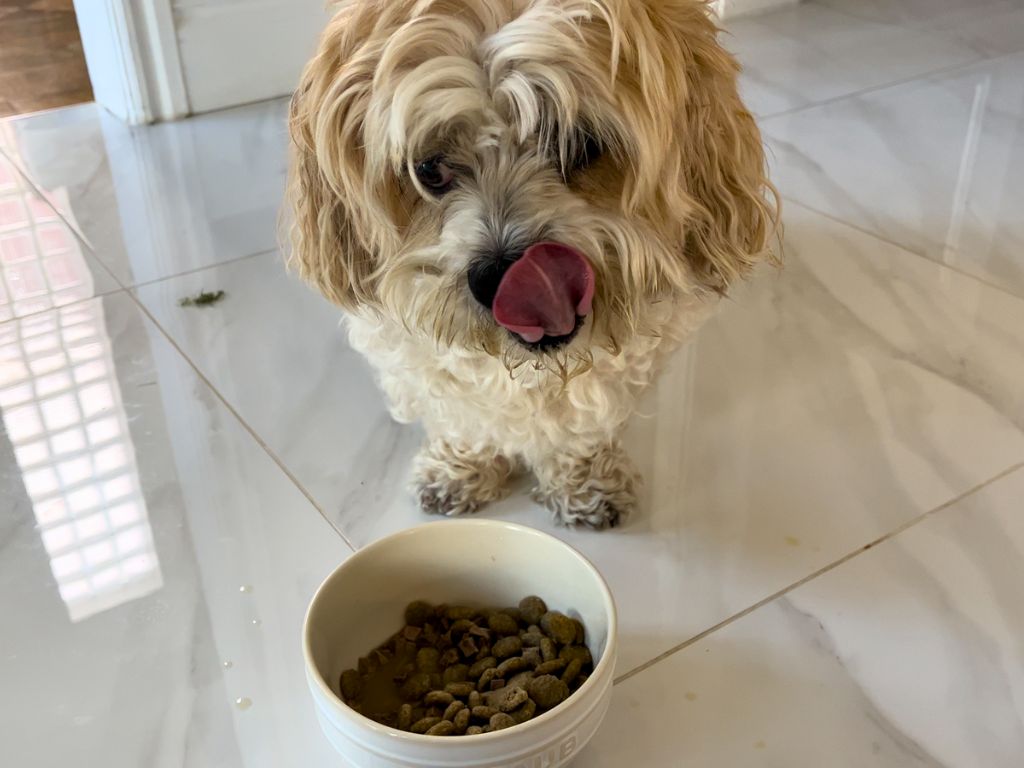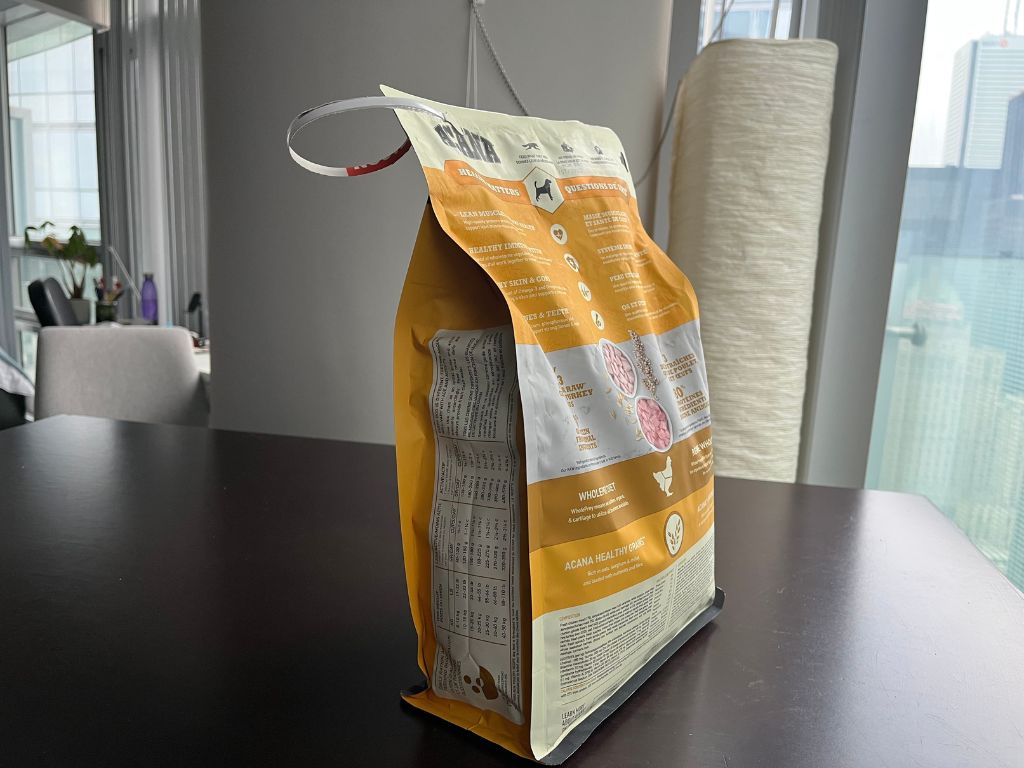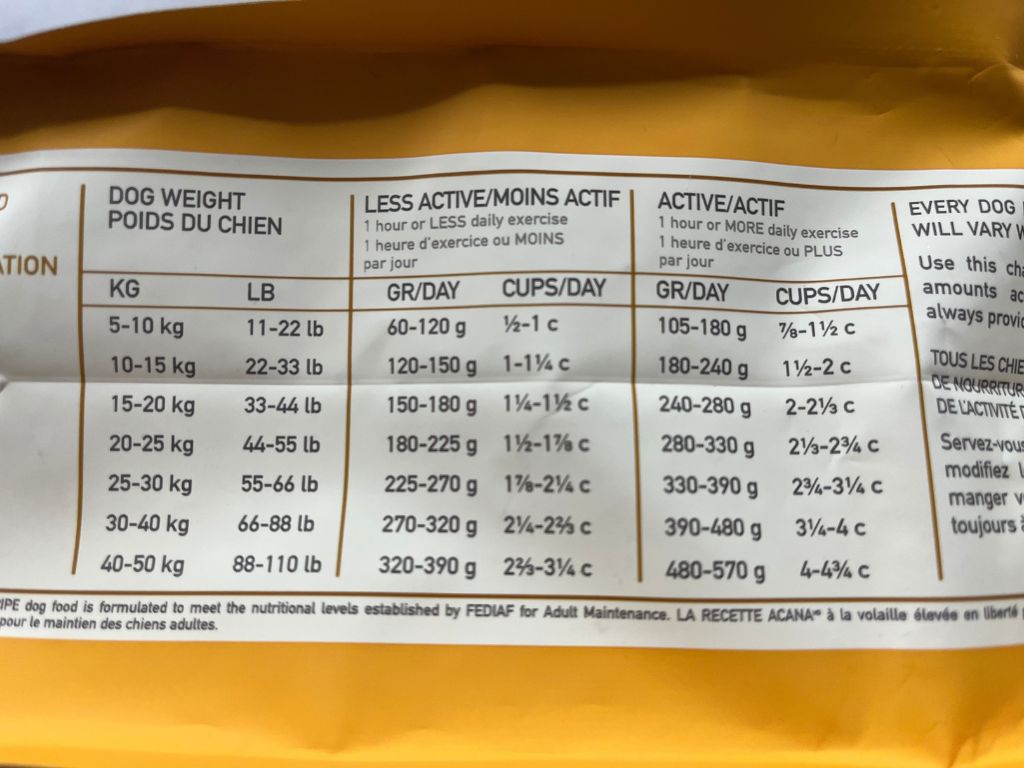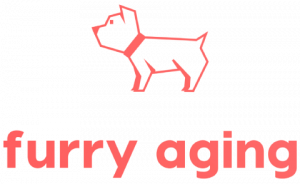
Slow and steady are key when it comes to helping your senior dog gain weight. You want to help them build up their body condition over the course of several weeks. It is easy to overcompensate when you are in this process, so it’s also important to have a target weight in mind.
Let’s review what are the expert advice and effective strategies to help your pup maintain a healthy weight in his golden years.
Assessing Your Senior Dog’s Health
Start by consulting with your veterinarian about your furry friend’s health condition. Senior dogs often face health issues that can cause weight loss.
A common one is dental diseases because they cause pain, leading to a loss of appetite. You can identify this by noticing other symptoms such as messy eating, chewing on one side of the mouth, or bad breath.
Kidney disease is another issue, which results in the accumulation of toxins in the body. This can make your dog lose interest in food, leading to quick weight loss.
Heart disease is a prevalent concern, and some of the symptoms include low energy, coughing, panting, and poor appetite.
Arthritis can also be a cause of weight loss because it can make eating from the bowl difficult. A quick fix is to elevate their food and water bowls to make sure they have easy access.
Deworming is also important especially as they get older and their immune system becomes weaker, making them more susceptible to parasite infections.
Choosing the Right Diet for Weight Gain
Check the label’s food first, especially check for the quality of the ingredients. Pet food manufacturers state their ingredients in order of quantity, so you want to choose those that have protein at the top of the list. Go for protein sources such as meat (e.g. chicken, salmon, beef, etc.), rather than meat by-products because these are unidentifiable scraps of meat and probably less nutritious.
Avoid foods that have cereals at the top of the list because these are harder to digest. Instead look for potato, rice, and vegetables for carbohydrates.

What is the best food for Senior Dogs?
A well-balanced diet for senior dogs should include a combination of:
- Protein: As dogs age, they may experience muscle loss which can affect their ability to repair damaged tissues. However, feeding them a high-protein diet can be harmful to their kidney function. The answer is a diet that is restricted in protein but has high biological value, meaning that the body can use most of it and there is less waste.
- Antioxidants and vitamins: Senior dogs require a diet with high levels of antioxidants to combat free radicals and strengthen their immune system. It is also important to supplement their diet with vitamins and minerals, with vitamin E being particularly crucial for protecting the heart, circulatory system, and immune system.
- Fats: They are an essential part of a dog’s diet because they help to build cell walls and provide energy. In the case of a dog trying to gain weight, consider adding a teaspoon of good quality coconut oil to each meal, because this is high-calorie and easy to digest. However, only do this if your dog doesn’t have a history of stomach problems and of course, consult with your vet first.
- Carbohydrates: They are the preferred energy source for the brain and muscles, and when they are converted into fat stored to be used later.
- Water: It is essential to provide access to fresh water at all times because it is an essential part of the cells, carries nutrients into cells, removes waste from them, and helps regulate the body temperature.
- Fiber: It helps with bowel movement. Some senior dog foods may contain higher levels of fiber because they may be more prone to constipation. Or alternatively, you could add pumpkin, fresh fruits, or vegetables to their diet.
Meal Frequency and Portion Control
Each food type and brand contains a unique amount of calories that is stated on the label. Usually, they include a graph or a table guiding you on how much to feed your pet depending on the size and activity levels. However, you should use these instructions as a guide, and if you are helping your dog to gain weight adjust the daily amount up a little bit. For example, you can increase their daily meal from once to twice a day, but give some time in between meals so their stomach doesn’t overload.

Potential Challenges and Troubleshooting
Picky eaters
If your furry friend is a picky eater, don’t let meal times become a way for them to seek attention. The best approach is to place their food down and then leave the room, allowing them to eat in peace. After 15 minutes, remove any uneaten food without commenting on it. For the next meal, offer them the same type of food and repeat the process. It’s important to avoid rewarding their behavior by replacing their regular diet with tastier food. Stick to the routine and soon your furry friend will learn to eat without fuss.
Overfeeding
It is also common that in the effort to help your senior dog gain weight owners overfeed them. It only takes 1% more calories than the pet needs to gain weight, so it is not difficult to end up with an overweight dog. Weight the dog weekly and record his weight, once he reaches his target weight stop the high-calorie addition– for example, the coconut oil. Now you will enter maintenance mode.
Changing diets
If you are changing your dog’s diet, it is important to do it gradually to prevent upsetting their stomach. The way to do this is by slowly introducing the new food while removing the old diet over the course of 1 or 2 weeks.
Let’s see an example:
| Day 1: | 90%of existing food mixed with 10% of new food |
| Day 2: | 80% of existing food mixed with 20% of new food |
| Day 3: | 70% of existing food mixed with 30% of new food |
| Day 4: | 50% of existing food mixed with 50% of new food |
| Day 5: | 30% of existing food mixed with 70% of new food |
| Day 6: | 100% of new food |
Conclusion
Helping your senior dog gain weight is not a sprint, but more like a leisurely stroll through the park. The starting point is to consult with your vet, who can provide insights into any health issues that might be contributing to your furry friend’s weight loss.
When it comes to food, your dog’s diet should be nutritious with good protein sources such as chicken, salmon, and beef. Avoid cereals as they can be tough on the stomach. Ensure that their food also contains antioxidants, vitamins, fats, carbs, and water.
But be careful not to overfeed your dog! it’s easier than you may think.
Related Articles:
- Why My Old Dog Won’t Eat from the Bowl Anymore
- Senior Dog 101: Our Curated Care Guide for Senior Dogs
- How to Make Homemade Food for Senior Dogs
Recent Posts
Amazon's Top Black Friday and Cyber Monday Deals for 2024: Dog Products Edition
The holiday shopping season has officially started and Amazon has already released some incredible deals on pet products for Black Friday and Cyber Monday 2024. Here is our curated list of the...
As someone who boards dogs as a side gig, I am used to seeing many pet trackers and smart collars these days. These devices have become a must-have tool for pet owners (especially when trusting their...
